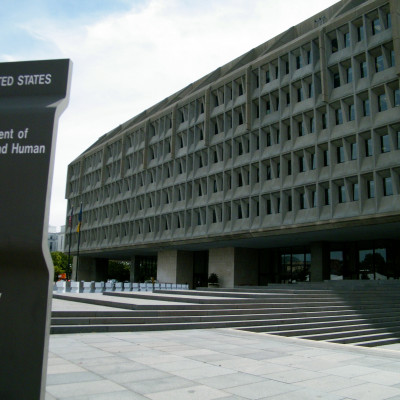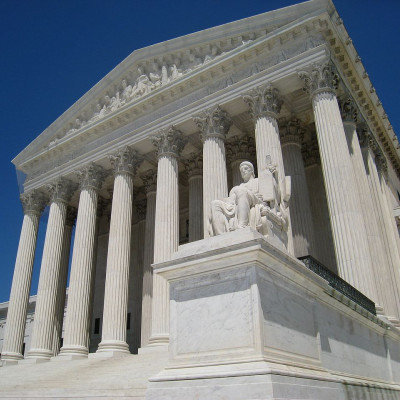September 30, 2020
September 2020 at Policy Integrity
- Conferences on Climate and Public Health, Corporate Climate Risk
- Policy Solutions for Transportation Market Failures
- A Path Forward for FERC to Address Climate Change
- Making the Most of Distributed Energy Resources
- Amicus Brief on Weakened Healthcare Discrimination Protections
- In the News: Deregulation Under a New Supreme Court
- Strengthening Public Advocacy for Better Healthcare
- Revesz Discusses Covid-19, Environmental & Racial Justice at NYU Events
- More from September 2020
-

Conferences on Climate and Public Health, Corporate Climate Risk
In the coming years, it is crucial that we fully consider the serious threat climate change poses to public health. This year our fall conference, which was co-hosted by NYU Law’s State Energy & Environmental Impact Center, brought together medical professionals and policymakers to discuss climate-related health problems and some of the barriers working against the full consideration of health impacts in environmental policy. Massachusetts Attorney General Maura Healey gave keynote remarks. The conference was an affiliated event of Climate Week NYC and the UN General Assembly. A video recording is available here.
It is increasingly clear that markets are not accurately incorporating climate-related risks into asset prices. We collaborated with NYU Stern’s Volatility and Risk Institute to host a conference on this issue and possible solutions. Experts on financial regulation, sustainable investing, and corporate governance explored how corporations can better assess and communicate climate risks. Robert Jackson, who recently stepped down as a Commissioner of the Securities and Exchange Commission, gave keynote remarks. Nobel Prize winner Robert Engle participated in another panel. A video recording is available here.
-

Policy Solutions for Transportation Market Failures
Market failures related to automobile travel lead to greenhouse gas emissions, local air pollution, traffic congestion, and collisions that generate billions of dollars in economic harm every year. We released a report that analyzes these market failures and highlights economically efficient transportation policy solutions that are currently within reach. Our report also discusses how these market failures disproportionately harm low-income and minority communities, and how new policy approaches can lead to more just outcomes.
-

A Path Forward for FERC to Address Climate Change
The Federal Energy Regulatory Commission is often overlooked as an important agency for climate policy, but swift regulatory reforms in FERC-jurisdictional sectors are crucial for decarbonization. Our report details the policy reforms FERC can undertake to enable a fast, cost-effective clean energy transition. We provide several near-term recommendations related to climate policy, transmission infrastructure, and energy market rules.
-

Making the Most of Distributed Energy Resources
Distributed energy resources, like rooftop solar and battery storage, have the potential to create significant social benefits if paired with the right policy tools. We released a report providing new, nationwide values for the environmental and public health benefits of distributed resources. Our estimates account for variations in geography, season, and time of day. More accurate “E-Values” can help policymakers design economically efficient DER policies that reduce air pollution.
-

Amicus Brief on Weakened Healthcare Discrimination Protections
Earlier this year, the Trump administration issued a rule that weakens its enforcement under Section 1557 of the Affordable Care Act, seriously narrowing the scope of civil rights protections for patients. We filed an amicus brief in a federal court explaining how the Department of Health and Human Services fails to acknowledge, let alone weigh, the significant harms resulting from the rule. Weakened protections would likely lead to additional discrimination and worse health outcomes for LGBTQ individuals and eliminate provisions meant to assist foreign-language speakers in healthcare settings, among other harms.
-

In the News: Deregulation Under a New Supreme Court
The possible confirmation of Amy Coney Barrett to the U.S. Supreme Court could play a key role in the outcome of the Trump administration’s biggest environmental rollbacks. The New York Times, TIME, and Rolling Stone cited our deregulation tracker in their coverage of the nomination, showing that the Trump administration’s win rate in court hovers just under 16 percent, compared to the approximately 70 percent win rate of prior administrations. Many of these failed rollbacks, however, could get another shot in court. Richard Revesz spoke with S&P Global about how a new Supreme Court could potentially constrain regulations related to energy, climate, and a slew of other federal programs.
-
Strengthening Public Advocacy for Better Healthcare
We partnered with the National Health Law Program to help launch a new initiative that aims to protect and expand health rights by supporting public engagement in administrative advocacy. My Care Counts monitors proposed changes to Medicaid and the Affordable Care Act, and gives people the tools to share their stories, advocate for better healthcare, and effect change through the public comment process.
-
Revesz Discusses Covid-19, Environmental & Racial Justice at NYU Events
Richard Revesz joined the NYU Environmental Law Journal for its webinar series on the pandemic and the future of cities, moderating a panel that detailed the ways in which dirty air contributes to Covid-19 health impacts. Revesz’s panel, which included environmental justice experts and medical professionals, focused on how disparities in both air quality and illness rates have disproportionate impacts on disadvantaged, vulnerable, or marginalized communities.
Revesz was also a guest on The Other Side of the Water, a podcast series presented by the NAACP Legal Defense and Educational Fund, Inc. and the Center for Human Rights and Global Justice at NYU Law. He discussed Justice Thurgood Marshall’s groundbreaking dissent in Jean v. Nelson, as well as his experience clerking for Justice Marshall during the year the case was decided. You can listen to the podcast here.
-
More from September 2020
We hosted a webinar on public lands and option value. We also submitted comments on:
- EPA’s Science Advisory Board review of a cost-benefit analysis rule
- Environmental justice considerations on New Mexico public lands
- An amendment to the PennEast pipeline project
- Oil and gas leasing in Colorado
- Energy conservation standards for air conditioners
Additionally, the Natural Resources Defense Council included our report on Colorado’s electric resource plan as an exhibit in its comment submission.


